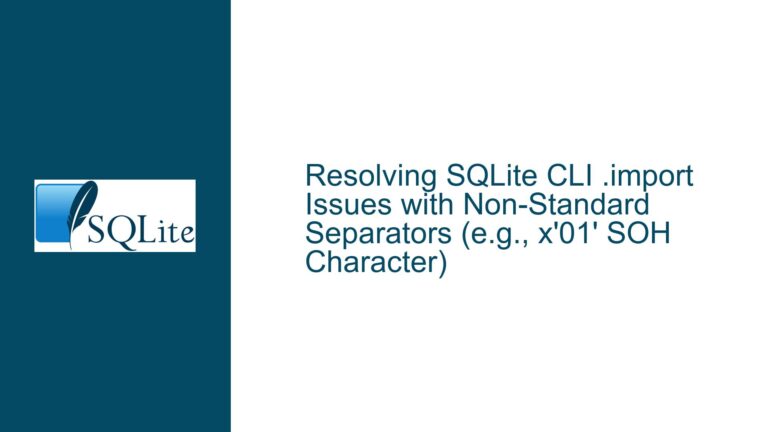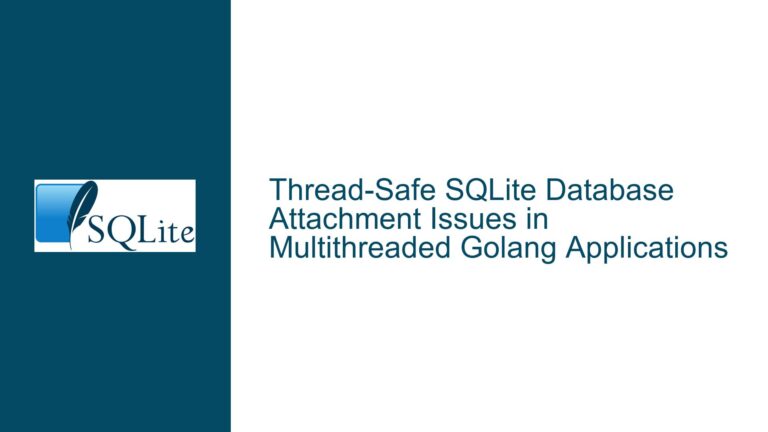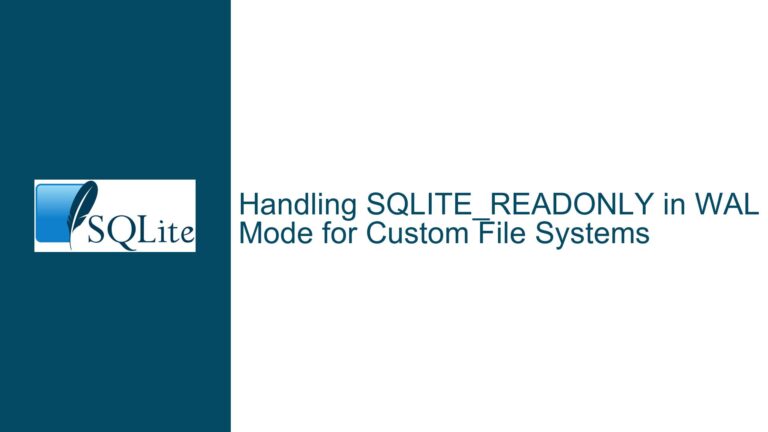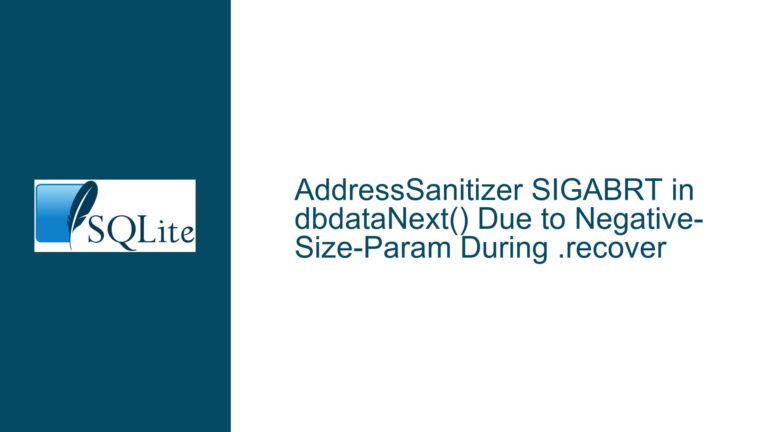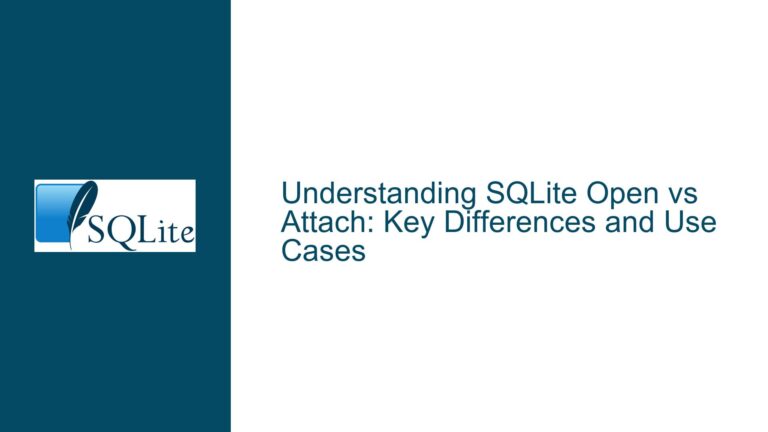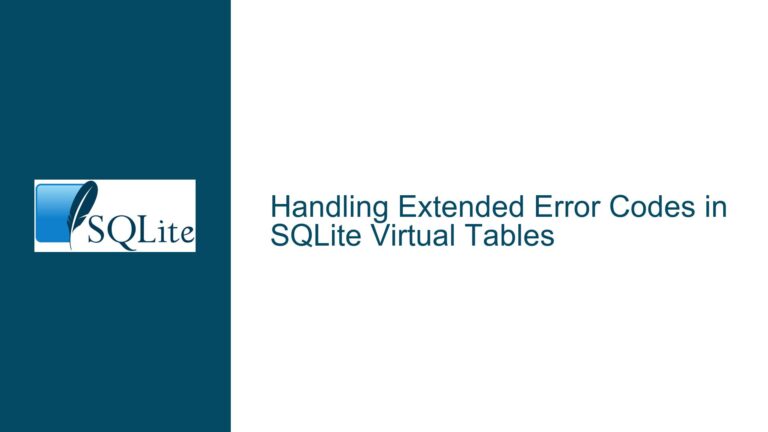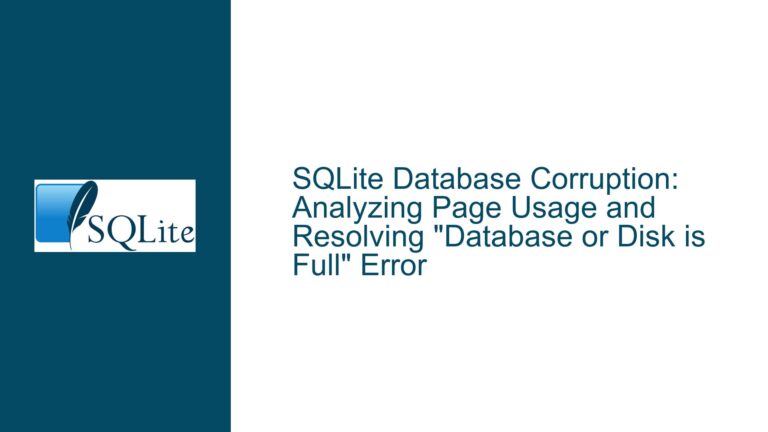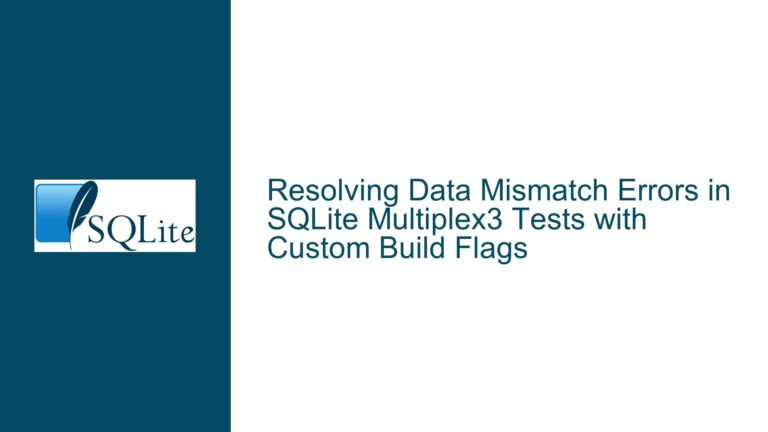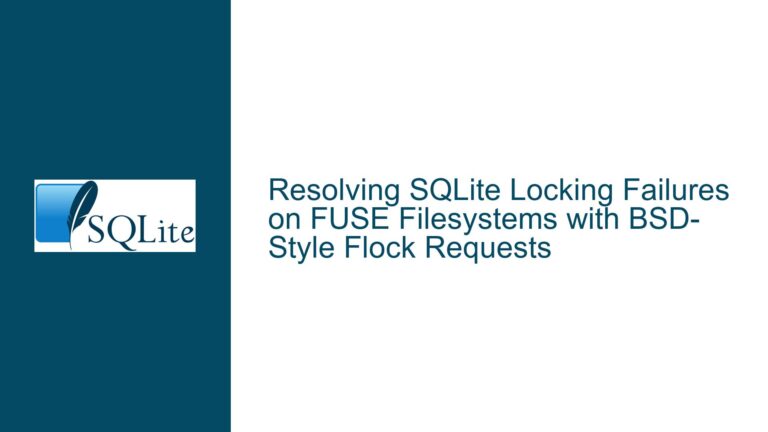Resolving SQLite CLI .import Issues with Non-Standard Separators (e.g., x’01’ SOH Character)
Understanding Column Separation Challenges in SQLite CLI Data Import The process of importing structured text data into SQLite databases using the command-line interface (CLI) relies heavily on correctly configuring column separators. When the source data uses non-standard separators—such as ASCII control characters like x’01’ (Start of Heading/SOH)—users often encounter unexpected behavior, including misaligned columns, incomplete…
